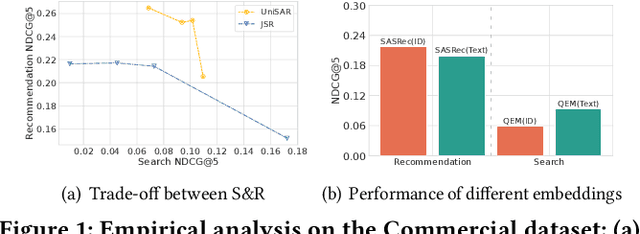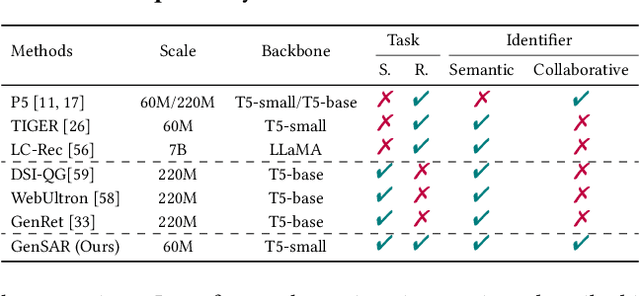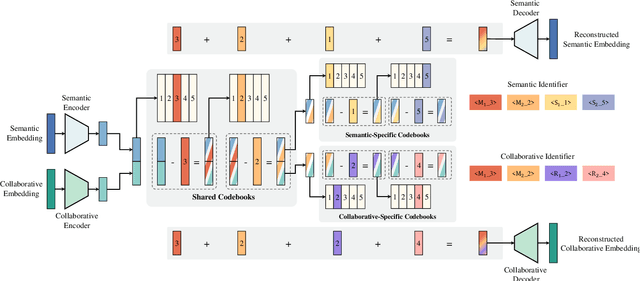Unified Generative Search and Recommendation
Paper and Code
Apr 10, 2025



Modern commercial platforms typically offer both search and recommendation functionalities to serve diverse user needs, making joint modeling of these tasks an appealing direction. While prior work has shown that integrating search and recommendation can be mutually beneficial, it also reveals a performance trade-off: enhancements in one task often come at the expense of the other. This challenge arises from their distinct information requirements: search emphasizes semantic relevance between queries and items, whereas recommendation depends more on collaborative signals among users and items. Effectively addressing this trade-off requires tackling two key problems: (1) integrating both semantic and collaborative signals into item representations, and (2) guiding the model to distinguish and adapt to the unique demands of search and recommendation. The emergence of generative retrieval with Large Language Models (LLMs) presents new possibilities. This paradigm encodes items as identifiers and frames both search and recommendation as sequential generation tasks, offering the flexibility to leverage multiple identifiers and task-specific prompts. In light of this, we introduce GenSAR, a unified generative framework for balanced search and recommendation. Our approach designs dual-purpose identifiers and tailored training strategies to incorporate complementary signals and align with task-specific objectives. Experiments on both public and commercial datasets demonstrate that GenSAR effectively reduces the trade-off and achieves state-of-the-art performance on both tasks.
 Add to Chrome
Add to Chrome Add to Firefox
Add to Firefox Add to Edge
Add to Edge